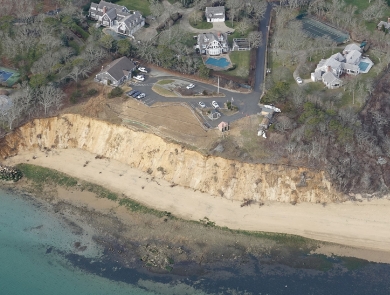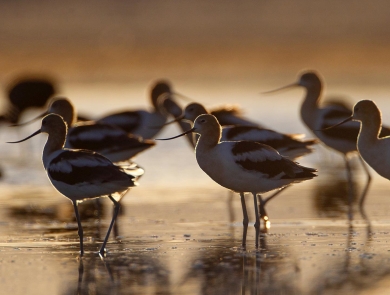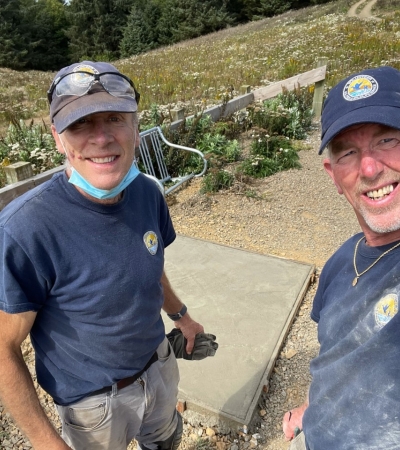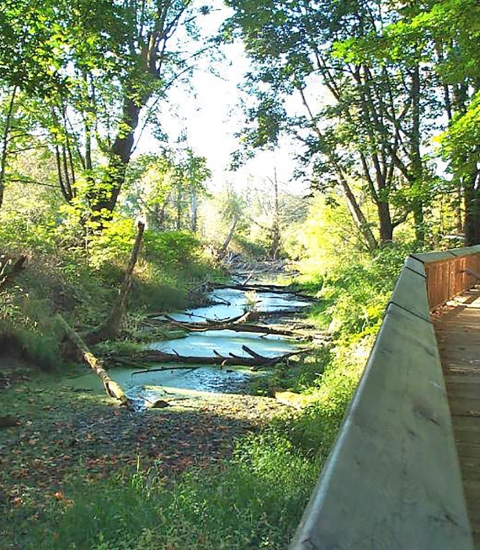Facility
Location
32 Refuge Headquarters
Indiahoma, OK 73552
United States
Volunteer Position Overview
About This Position
Purpose:
Create a positive experience for visitors while maintaining campground facilities and Refuge resources.
Local Site:
Wichita Mountains Wildlife Refuge (WMWR), Doris Campground
Local Community Information:
Located in southwest Oklahoma, near Lawton Oklahoma
Qualifications:
Campground hosts serve as volunteers in the Doris Campground located on the WMWR. Hosts are frontline representatives of the U.S. Fish and Wildlife Service (FWS) and provide customer service, information, and assistance to visitors camping in the refuge. Campground hosts must be friendly and approachable, as they are often the only FWS representative a visitor may encounter during their stay.
Requirements:
Driver’s license, Defensive Driver Training, ability to lift up to 30 pounds, wear volunteer uniform (provided), pass a background investigation, work a minimum of 32 hours per week.
Duties and Responsibilities:
The host works five days per week. Workdays are split into morning and evening shifts when visitors are most frequently in the campgrounds. Host responsibilities include patrolling the campground, clean-up, general campground maintenance, and other campground-based projects as assigned. Hosts help create a positive memory for Refuge visitors while maintaining quality facilities and reducing vandalism, tree damage, and negative wildlife encounters.
- Provide customer service to campers.
- Keep restrooms and campsites neat and clean.
- Check campers in and out on Rec.gov administrative site (The Hub).
- Educate campers regarding campground policies, recreational opportunities and natural/cultural resources.
- Greet visitors with a friendly and helpful attitude. Assist with campsite registration, answer questions and assure compliance with regulations.
- Perform light maintenance of campsites.
- Put out any unattended campfires.
- Maintain a neat, clean and organized host site as an example to the visiting public.
- Report any law enforcement issues to Law Enforcement and/or Visitor Services Staff.
- Keep Visitor Services Staff updated on any issues regarding campers, campsite facilities or maintenance needs.
- Provide initial response the emergencies as needed.
Ability to meet and greet the public with a friendly and helpful demeanor. Good physical conditioning required. Live and work, often unsupervised, in a remote location. Ability to adapt to weather conditions that accompany the Wichita Mountains climate. Ability to make sound common-sense decisions, use materials at hand to resolve a minor situation, have initiative, willingness to learn, and a profound appreciation for nature and the outdoors. Experience in backpacking, hiking, Leave No Trace, wilderness ethics, certification in CPR and first aid desired.
Camp Hosts will not be required to handle any law enforcement issues. All violations can be reported to law enforcement and recreation staff.
Conditions of Service:
A basic background investigation is required. To qualify for Refuge housing or RV site, the volunteers’ primary residence must be at least 50 miles away from WMWR. Additionally, volunteer camp hosts must work at least 32 hours per week, which will include Saturday & Sunday. Basic volunteer uniform components will be provided.
Hours and Time Commitment:
Schedules are determined by supervisors and all hosts must volunteer a minimum of 32 hours a week. We ask for hosts to volunteer 6 months, but a 3-month minimum commitment is required. Desired time frames 7/1/2024-1/6/2025 and 1/6/2025-6/30/2025, somewhat flexible start and end dates. 2 positions each.
Training Required:
Hosts will be trained in all aspects of their duties during the first week of duty. Training will include campground orientation, facility cleaning procedures, golf cart operation, radio communication, Rec.gov roles & responsibilities, and Refuge regulations.
Work Environment:
This position will include working outdoors in various weather conditions. Currently, there is little to no cell phone coverage on the Refuge and access to Wi-Fi is limited.
Reimbursements:
RV site (full hook-up; electric, water, sewage), Refuge vehicle for campground work (pick-up or golf cart), propane, and access to laundry facilities. Volunteer must provide their own RV.
How to Apply: Send a cover letter and resume (including 3 references) to:
or by mail
Attn: Naomi Baucom
Wichita Mountains Wildlife Refuge
32 Refuge Headquarters
Indiahoma, OK 73552
Desk (MS Teams): (580) 215-0618 C: (580) 574-2243
Duties/Activities
Stories About Volunteering
Other Ways to Work with Us
Are you looking for something different than a volunteer opportunity? The Fish and Wildlife Service employs around 9,000 people nationwide and offers great internship opportunities every year.






